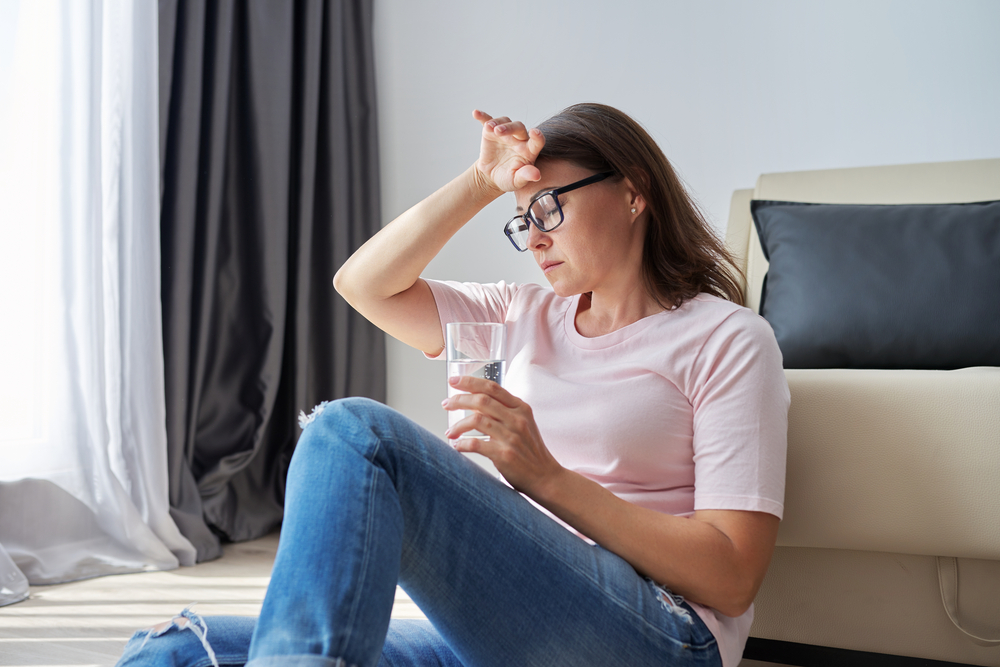What is menopause?
Menopause is the absence of menses for one year. It is a retrospective diagnosis because the definition it is not established until it’s been one year since the final menstrual period.
Why does menopause occur?
This happens when the ovaries stop releasing eggs and stop making significant amounts of the hormone estrogen. Menopause still occurs in a woman who has had a hysterectomy (removal of the uterus) without removal of the ovaries although she will not have the marker of menses stopping. If the ovaries are surgically removed, then an iatrogenic (condition caused by medical intervention) menopause occurs.
When does menopause occur?
For most women menopause occurs between the ages of 48 and 52, with an average age of about 51. It can occur anytime between 40 and 55 years old but is considered early menopause if prior to age 45. Cessation of menses due to lack of ovarian estrogen prior to age 40 is termed premature menopause.
What is perimenopause?
Perimenopause occurs during the years approaching menopause. The process varies among women. Some have no perimenopause and simply stop menses at menopause without preceding symptoms. However, many have symptoms of perimenopause that may include hot flushes, irregular menstrual cycles, vaginal dryness, and trouble sleeping during the years approaching menopause.
Why does perimenopause occur?
During this time the ovaries may gradually be making less estrogen or making it more erratically prior to stopping altogether. In addition, eggs may be released less regularly than monthly with the result of irregular bleeding patterns.
When does perimenopause occur?
The American College of Obstetricians and Gynecologists states that perimenopause occurs between the ages of 45 and 55. This is generally true, but I have observed symptoms of perimenopause in women starting as early as their mid to late thirties. On the other hand, some women never have symptoms of perimenopause but proceed directly to menopause with menses stopping without prior symptoms.
What are the most prominent symptoms of menopause?
Other than the absence of menstrual periods, the most prominent symptoms fall into two categories: 1. Vasomotor symptoms (“VMS” or “hot flushes” or “hot flashes”) and 2. Vaginal atrophy (vaginal tissue thinning and drying, sometimes called genitourinary syndrome of menopause or “GSM”).
Hot flashes: These 1–5-minute episodes of feeling extreme heat, especially in the face neck and chest, often occurring multiple times a day, can be very disturbing and are characterized by sweating, clamminess, chills, and anxiety. They can occur at night, interfering with sleep and sometimes causing chronic sleep deprivation.
Vaginal thinning and dryness: The vagina can become dry, abnormally sensitive, irritated, or itchy. Intercourse may become painful as a result. Urinary symptoms may develop including feeling the need to void frequently.
What are other symptoms of menopause?
Many other symptoms other than hot flashes and vaginal dryness can occur due to the lack of estrogen during menopause. These vary greatly among different women. The potential list is long and includes anxiety, irritability, mood swings, decreased sex drive, weight gain, and an increased risk of depression.
What are the symptoms of perimenopause?
Any of the symptoms of menopause can occur in perimenopause! They may or may not be more erratic, but they can be every bit as bothersome to your quality of life. In addition, the menstrual periods have not stopped yet in perimenopause and the dwindling estrogen and possible irregular ovulation can cause irregular or heavy bleeding or abnormal uterine bleeding (AUB). AUB must be discussed and evaluated because it can also be a sign of a serious underlying problem including cancer, pre-cancer, or a disorder of hormones or the blood-clotting system. Learn More
“Dr. Fortier, I’m having menopausal or perimenopausal problems. What can we do?”
The good news is we have many options to discuss to relieve problematic symptoms. Menopause usually does not have to be a time when your quality of life is harmed by the side effects of declining ovarian hormones.
There is no one size fits all solution. We must carefully discuss which particular symptoms you are having and how much they are bothering you. My job is to listen carefully and provide understandable information about the pros and cons of the available options. Then I will follow your lead as we decide together by the process of shared decision-making what, if anything, to do.
We often decide on a course of trial and error where we will try the simplest and safest options first and consider proceeding further down the list if needed until you are where you want to be.
Ultimately, replacing the missing estrogen is the overall most effective treatment. This requires us to discuss and consider the risks and benefits and decide together. Many patients are surprised to learn that estrogen replacement comes in many forms (including pills, patches and vaginal pills, creams, and rings) and dosage levels and that the risks may be negligible or much less than commonly imagined. For example, the evidence is that estrogen alone does not increase the risk of breast cancer, some forms may not increase the risk of blood clots, and that women who use estrogen in menopause may live longer. You should be informed to make your best decision for yourself.
For those who want to avoid hormone replacement or have health reasons that preclude its use we will discuss alternatives in the forms of lifestyle changes, supplements and non-hormonal prescription medications.
In any case, if you have questions or are having problems, lets discuss and go from there. The great majority of women can be comfortable, productive, and happy during this time of life. Call to schedule an appointment: 919-916-3333.
Note: This article is for general information and to summarize the approach of this practice. Each situation requires individual discussion and consideration for each patient to decide on a plan.


